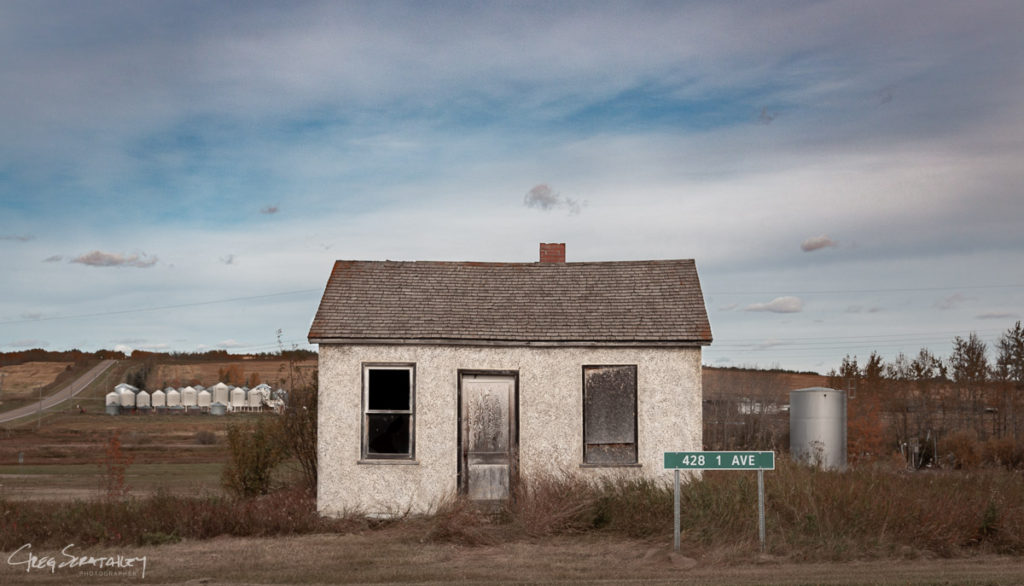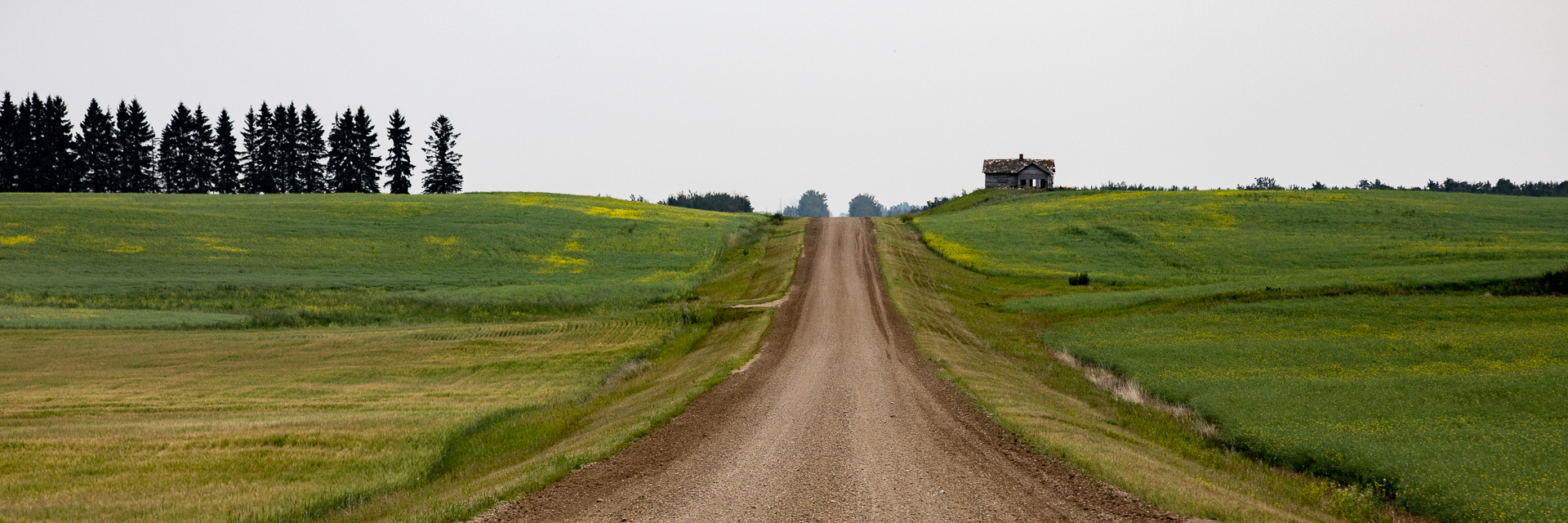On the global scale, Alberta’s history is indeed short. From the late 1890’s to early 1910’s our Province saw an influx of new settlers looking to farm crops of barley, rye, and wheat, and the great Railroads laid tracks to criss-cross the prairies connecting these farming communities with their markets.
By the 1960’s many of these rail lines were considered un-necessary or redundant owing to road transportation, and as a result untold numbers of Villages and Hamlets saw their rails disappear, their elevators go silent, and their residents move to larger centres.
Today – these villages, now hamlets (in the best cases) face the final ringing of the bell as their aging population slowly passes away or leaves for the security of the city.

When the major railways in Alberta consolidated lines, many small towns and villages were left high and dry. Hairy Hill in Two Hills county is just such a place. From a peak of 316 residents in 1995, Hairy hill is now home to less than 100 – and we watched 3 more packing up and leaving town while visiting for a shoot. This residence, like many others is now owned by the wind alone.
What they leave behind is a legacy of sweat and toil, built into the landscape. City streets once busy now are simply places for the wildlife to travel a little more easily. The husks of former life sit dormant as the winds and snow incessantly batter the structures down. Soon the prairie ‘lean’ will set in and eventually these buildings will simply no longer be here – torn down, or repurposed. Worse – many of these towns are simply waiting for buildings to grow into the landscape itself as prairie scrub simply grows around, under, and into them.

My September drive took me less than 90 minutes from home, but we found two of these small communities. Hairy Hill and Willingdon – both former rail towns, now isolated communities a stones throw from those towns that had a little more to offer. Closer to major highways, well situated by still operating rails.
I wonder about the families that settled these places, where they’ve moved to – and what if anything they hold on to from the old village they called home.
/Greg

